This is the fifth essay of Global China’s “Lost in translation: Decoding Chinese strategic narratives” series. The full collection of essays can be found here.
Washington is afraid of TikTok. More precisely, it is afraid of Beijing’s influence over TikTok via the platform’s China-based parent company ByteDance. Critics allege TikTok, where a third of U.S. adults under 30 get their news, is used to “silence free speech,” “undermine democracy,” and “promote propaganda.” Through China’s National Intelligence Law, ByteDance could gain access to the personal data of its 170 million U.S. users. These fears drove President Joe Biden to sign into law a bill forcing TikTok to find a new owner in one year or be banned in the United States.
TikTok has attempted to rebut these accusations by storing U.S. user data on American soil through “Project Texas” and limiting the reach of Chinese state-backed accounts. However, the company has been forced to contend with its own record. Interviews with TikTok employees indicate the company is ultimately “answerable to ByteDance rather than its international leadership.” TikTok has misrepresented the work of researchers at the Citizen Lab to downplay privacy concerns about the app. Chinese engineers have reportedly accessed U.S. user data, despite TikTok’s claims to the contrary. And while TikTok CEO Shou Zi Chew has stated that the company is “not an agent of China,” Beijing has publicly and privately lobbied on the company’s behalf.
The TikTok debate points to a more fundamental question about Beijing’s overseas activities: What separates benign foreign influence from malign interference? And if foreign-owned platforms like TikTok are used for both interference and influence, how should we respond? Democratic governments have used both terms to refer to Chinese activities overseas. A March 2024 report by the Office of the Director of National Intelligence warned of the risk of China’s “malign influence operations” while an ongoing inquiry into the 2019 and 2021 Canadian federal elections has identified China “as a main perpetrator” of interference activities.
Though often used interchangeably, foreign influence and foreign interference are distinct. While the former may be more tolerable, the latter is not. And to sculpt policies that protect national security and safeguard human rights, policies should focus on combating malign interference wherever it occurs, not merely on specific platforms like TikTok.
Soft power versus sharp power
What differentiates influence from interference is both the type of power used and the impact on the targeted nation. Foreign influence activities are a form of what Joseph Nye called “soft power.” In contrast to “hard power” like military force, a government marshals soft power to persuade other countries to “want what it wants.” Three features characterize foreign influence as a form of soft power. First, these activities are transparent, with the sponsoring state publicly acknowledging its role in the activity. Second, these activities are legal, adhering to domestic laws and not contravening relevant international human rights instruments. And third, these activities are not fundamentally harmful to the interests of the target nation or those living inside its borders.
In contrast, foreign interference is what some researchers have referred to as “sharp power,” or the forms of authoritarian influence which states use to “pierce, penetrate, or perforate the information and political environments in the targeted countries.” Rather than seeking to win hearts and minds, states use foreign interference to spread disinformation, undermine political institutions, and silence overseas critics. Foreign interference activities are covert, corrosive, criminal, or coercive. Examples include a China-linked covert disinformation campaign aimed at corroding U.S. voter turnout rates and efforts by “illegal agents” of the People’s Republic of China (PRC) to “harass, stalk and coerce” U.S. residents on behalf of Beijing. Not all foreign interference activities succeed in sowing doubt, undermining institutions, or repressing opponents. But even when these measures fail, foreign interference challenges democratic processes and institutions, national security, and even the safety of people in the target state.
Both democratic and authoritarian countries regularly engage in foreign influence. For decades, the United States has leveraged programs like the Peace Corps and the U.S. Agency for International Development to export its political values and build support within countries that are open to fostering amicable relations with Washington. Likewise, China has leveraged its economic prowess to influence other countries. Via the Belt and Road Initiative, Beijing leverages development programs to foster ties with countries around the world. These programs include aid and investment in Africa as well as medical and health care assistance during the COVID-19 pandemic. While critics have identified problems with both U.S. and Chinese aid programs, what makes both countries’ programs examples of foreign influence, rather than interference, is that these programs are largely transparent, legal, and not explicitly coercive.
There are well-founded concerns about malign Chinese state activities overseas. Yet not all Chinese state engagements abroad are examples of foreign interference. Long-standing debates about China’s Confucius Institutes illustrate the importance of distinguishing influence from interference. Critics of the Confucius Institutes are correct that these centers were part of Beijing’s efforts to gain influence abroad. In the face of claims that Confucius Institutes are “a propaganda tool” of Beijing, universities and colleges that once hosted the institutes have in the last five years overwhelmingly ended their partnerships.
Yet the legacy of Confucius Institutes in the United States is one of failed soft power, not malign interference. A 2019 Government Accountability Office report found diverse perspectives about Confucius Institutes from administrators and educators, with concerns about academic integrity balanced by appreciation for the role Confucius Institutes could play in supplementing underfunded Mandarin language programs. Rather than being a “Trojan horse,” a survey of more than 1,000 students at U.S. high schools found that Confucius Institute Mandarin language programs did not produce “pro-China” viewpoints. And despite arguments in favor of an “appropriately managed Confucius Institute network,” it was U.S. government pressure and the potential loss of federal funding, not fears of Chinese state interference, which convinced most schools to end their partnerships with Confucius Institutes.
When influence becomes interference
When does influence become interference? The role of the united front system, “a network of party and state agencies responsible for influencing groups outside the party,” in China’s overseas engagements makes it hard to draw a firm line between influence and interference. And given the expansion of united front work under Xi Jinping, it is reasonable to approach engagements with Chinese state-backed actors with caution. Though difficult, it is necessary to distinguish influence from interference, lest governments view every activity or institution with foreign ties as malign. Distinguishing influence from interference in turn requires carefully assessing “individual issues on their own merits.”
Canada provides several illustrative cases of foreign interference. Despite Beijing’s denials, Chinese government activities during the 2019 and 2021 Canadian federal elections meet the criteria for foreign interference. In one egregious example, Chinese international students were provided with falsified documents to vote in the nomination race for a candidate favored by Beijing and implicitly threatened that “their student visas would be in jeopardy and that there could be consequences for their families living in the PRC” if they did not comply.
Beijing also deployed sharp power to pierce and perforate the information environment in Canada. In 2023, Global Affairs Canada identified a China-linked social media “spamouflage” campaign which operated through a host of social media platforms—including TikTok—to attack members of Parliament and silence regime critics. Even though the Canadian government’s initial report of an ongoing public inquiry found that this interference did not succeed in changing the overall election results, Beijing’s interference did undermine public confidence in Canadian elections and the country’s democratic system.
China’s overseas police service stations are another clear example of foreign interference. Located in dozens of countries, these covert stations link local Chinese public security bureaus and Chinese diaspora organizations. Beijing has repeatedly dismissed concerns regarding the stations. Yet numerous democratic states have expressed concern about the Chinese government’s lack of transparency about these stations, which potentially violate the Vienna Conventions on diplomatic and consular relations. Some stations have been linked to “persuasion to return” operations aimed at coercing Chinese citizens into returning to China.
The most egregious form of foreign interference used by the Chinese state is transnational repression, or Beijing’s effort to extend its coercion beyond its territorial boundaries in order to pressure and control diaspora members viewed as threats to the party-state. Through digital harassment, kidnapping, and coercion by proxy, Beijing has targeted Chinese students, Hong Kong activists, Tibetans, and Uyghurs, among others. Transnational repression does not only harm those Beijing views as threats. It also encourages self-censorship and silence among other diaspora members. And by extending authoritarian control over diaspora members living in democratic societies, transnational repression threatens both state and individual sovereignty.
TikTok is not a unique threat
There are real concerns about TikTok’s operations. The U.S. government has already prohibited government officials from using the app on work devices, as has Canada, the United Kingdom, Taiwan, and major European Union bodies. Prohibiting government officials from using invasive apps on work devices is entirely appropriate. However, in calling for a nationwide ban on TikTok, U.S. policymakers misidentify both problems and solutions. The problem of Chinese state interference is not unique to TikTok, and a ban may do little to protect the personal data of U.S. social media users or combat Beijing-backed disinformation.
TikTok is hardly the only social media company engaging in “surveillance capitalism.” While critics have warned that TikTok gives “the [Chinese Communist Party] unfettered access to troves of Americans’ data,” most social media apps are “invasive-by-design.” U.S. data brokers operate with “with virtually no oversight,” while companies have sold everything from location data to facial recognition databases to local police, including data of people not suspected of any crime. As the Signal Foundation’s president, Meredith Whittaker, argues, a forced sale of TikTok would fail to offer meaningful privacy protections to U.S. social media users but would instead grant the U.S. government greater leverage over social media companies.
Nor would a ban address the problem of foreign interference in the form of state-backed propaganda, what TikTok bill co-sponsor Representative Mike Gallagher has called an even “greater concern” than the threat to users’ data security. TikTok hosts influence activities like clearly labeled Chinese state media and interference activities like covert state-linked accounts aimed at undermining foreign elections. Yet in this regard, TikTok is hardly unique. Official Chinese state media accounts are active on X (formerly Twitter), while state-backed disinformation is rife on Facebook and YouTube. U.S. social media platforms have also complied with other autocratic states’ censorship demands. Elon Musk’s decision to remove clear labels on state-controlled media on X has increased the reach of propaganda accounts on the platform. Moreover, critics assert that banning TikTok risks “infringing on Americans’ First Amendment rights” and could “diminish the United States’ credibility as an advocate against censorship internationally.”
Responding to foreign interference
Beijing’s record of foreign interference is well-documented. However, in responding to the risk of foreign interference, the U.S. government should implement targeted measures that address specific risks. Chinese state-linked actors operating in the United States who fail to register as foreign agents should be held accountable. Those who engage in transnational repression should be charged. And where problems are widespread, systemic solutions are needed. To protect social media users, Washington should implement comprehensive privacy legislation that applies to all platforms, whether Chinese or not.
Policymakers should also clarify which activities are malign interference that need to be addressed and which activities are benign influence that may be tolerated. This distinction must in turn be widely communicated to the public to avoid contributing to anti-Chinese racism. At a time when U.S.-China relations are characterized by partisan passions and fear, sober-minded policymaking is ever more imperative.
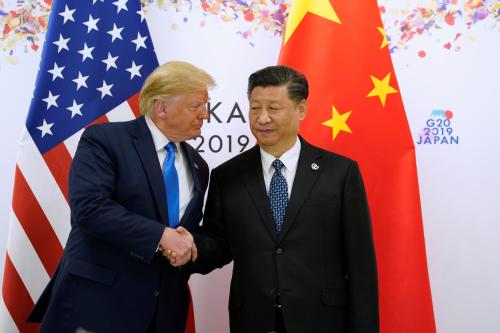
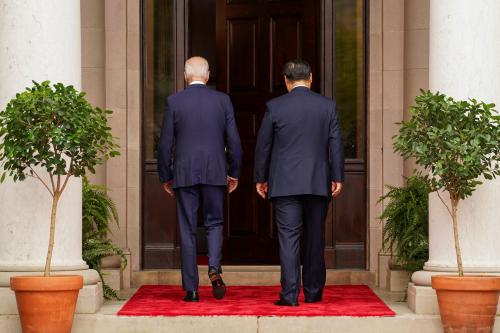




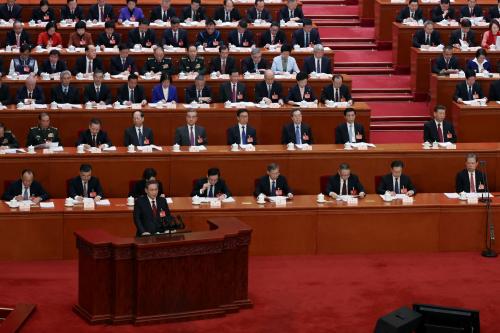
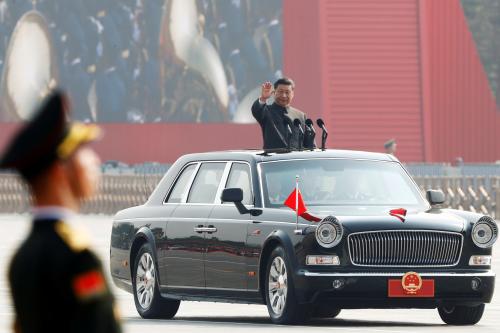
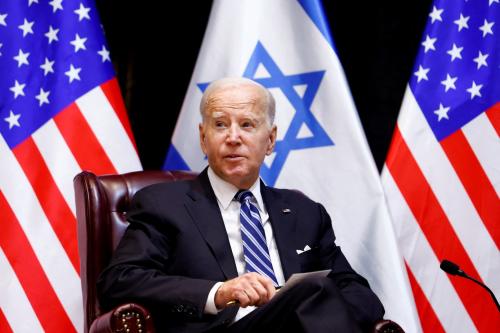
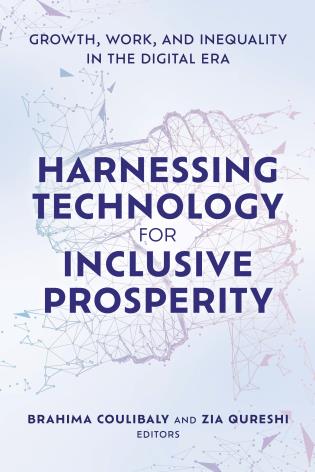

Commentary
The TikTok debacle: Distinguishing between foreign influence and interference
June 24, 2024